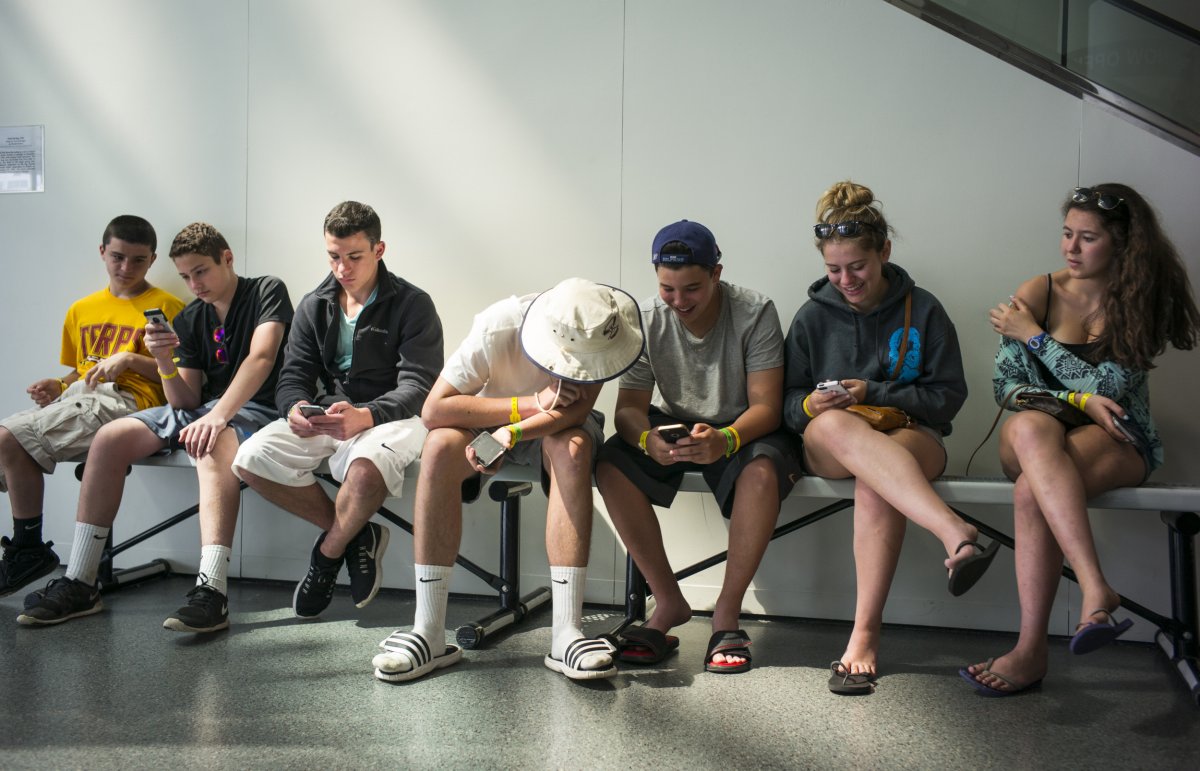
Most American teenagers spend nearly seven and a half hours of their day using electronic media, according to an analysis of their screen habits.
That statistic, along with many others, was gleaned from the results of a national survey of over 1,600 Americans between the ages of eight and 18 conducted by non-profit Common Sense Media. The study was meant to learn about the media consumption of today's American youth, specifically "their enjoyment of various types of media activities, how frequently they engage in those activities and how much time they spend doing so."
Throughout the survey's summary, Common Sense Media made a distinction between teenagers (ages 13 to 18) and their younger counterparts, tweens (ages 8 to 12).
Teens were found to spend an average of 7 hours and 22 minutes per day consuming media from screens, not including for the purposes of doing their homework. Tweens got in about 4 hours and 44 minutes of "screen time" every day.
When compared to the average time both age groups spent consuming any type of media whether it required a screen or not, the findings indicated that teens and tweens overwhelmingly use electronic devices. According to the survey, teens spent about two and a half hours with non-screen media like books or music, generating a total of 9 hours and 22 minutes of media consumption. Tweens spent an hour and 10 minutes with media that did not require a screen, for a sum of 5 hours and 54 minutes.
Much of the study was devoted to comparing results from the 2019 survey to those of one conducted four years ago. Common Sense Media found a number of trends that indicated the skyrocketing ubiquity of screens in the lives of U.S. youths. For example, only half of all teens owned a smartphone in 2015, but the 2019 survey found that just under three-fourths (72 percent) now own one.
Using devices for homework has now become a must. The survey found that the teen demographic, comprised of students typically in grades 8 through 12, was more than twice as likely to use computers for their homework in 2019 than in 2015. In 2015, only 29 percent of teens used computers for their homework, but now 59 percent do so.
Tweens, usually in grades 3 through 7, used screens less frequently for homework, but their percentages, too, had risen sharply. Only 11 percent of tweens used computers for homework in 2015, but now 27 percent do.
Further, a full 69 percent of teens in 2019 reported watching online videos (mostly from YouTube) every day, compared to just 34 percent in 2015. Under a quarter of tweens watched videos daily in 2015, but that percentage has risen to 56 percent in 2019.
The survey also revealed evidence that socioeconomic status played heavily into screen use. Teens who come from households making more than $100,000 per year were 18 percent more likely to own a laptop and 15 percent more likely to have a smartphone than those whose families earn less than $35,000 a year.
The report also generated statistics that indicate a "homework gap," or the difficulty for students who do not have access to the internet or electronic devices at home may face when their assignments require it, or when completing homework would be easier with those amenities. According to the survey, teens from lower-income backgrounds were apt to spend almost twice as much time using their phones for homework than their peers of higher-income backgrounds.
In the summary of the findings, Common Sense Media said the survey was conducted to "provide reliable national data" that can assist parents, teachers and the country's leaders in the endeavor to create healthy media consumption policies for youth.
Uncommon Knowledge
Newsweek is committed to challenging conventional wisdom and finding connections in the search for common ground.
Newsweek is committed to challenging conventional wisdom and finding connections in the search for common ground.
About the writer
To read how Newsweek uses AI as a newsroom tool, Click here.








